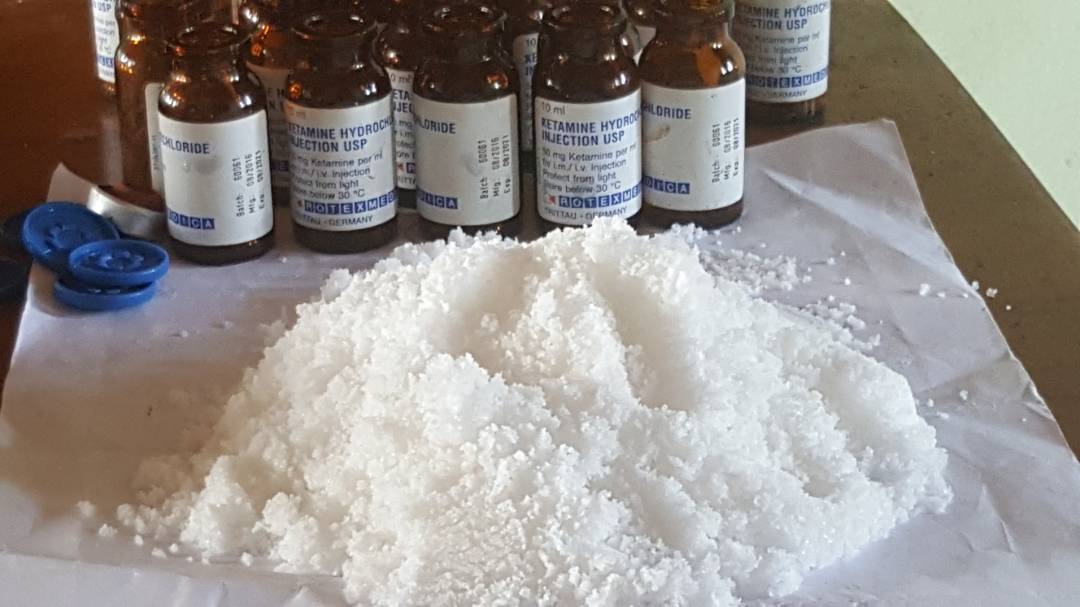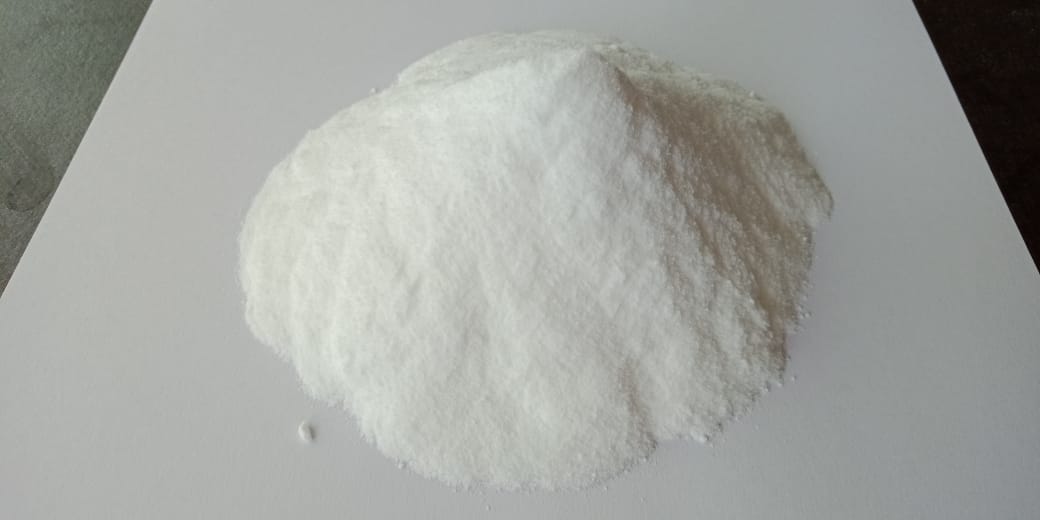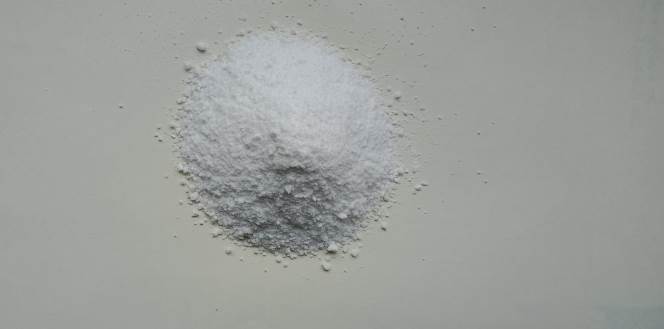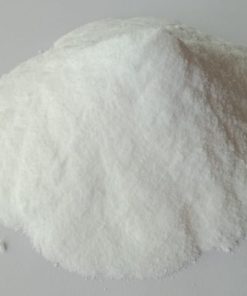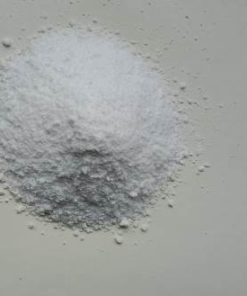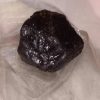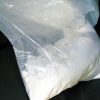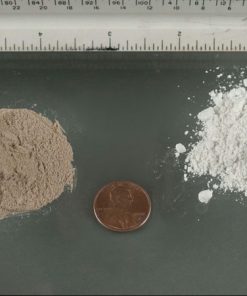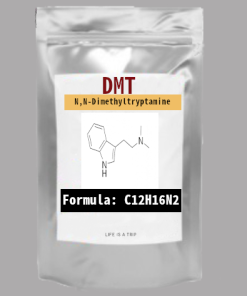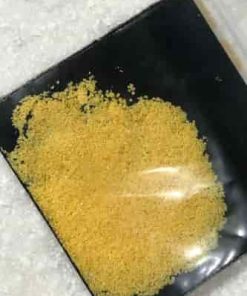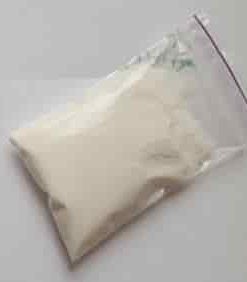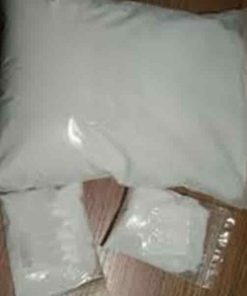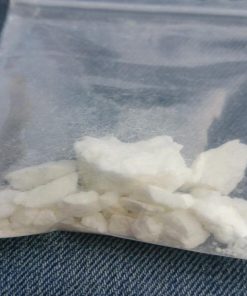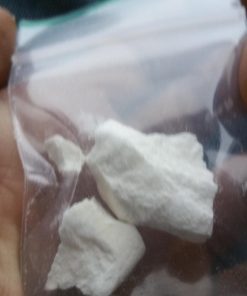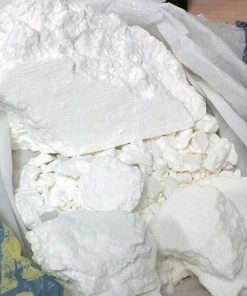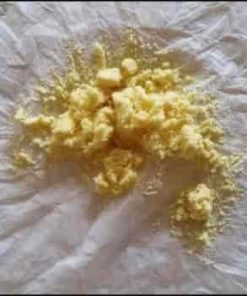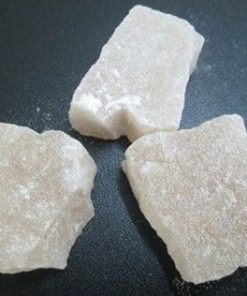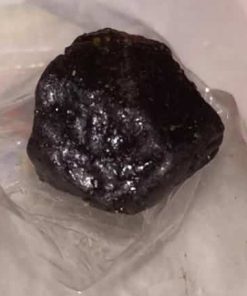Ketamine Powder | ketamine (bulk) 100 % powder
$250.00 – $4,000.00
Full Chemical Name: Ketamine Powder
Systematic IUPAC Name: (RS)-2-(2-Chlorophenyl)-2-(methylamino)cyclohexanone
CAS Number: 6740-88-1
ATC code: N01AX03 (WHO)
DrugBank: DB01221
ChemSpider Number: 3689
Molecular Formula C13H16ClNO
Molecular Mass 237.725 g/mol
Purity: 99.8%
What is Ketamine?
Ketamine sold under the brand name Ketalar among others is a medicine mainly used for starting and maintaining anesthesia. It is an NMDA receptor antagonist with a potent anesthetic effect. It was developed in 1963 as a replacement for phencyclidine (PCP) by Calvin Stevens at Parke Davis Laboratories. It started being used for veterinary purposes in Belgium and in 1964 was proven that compared to PCP, it produced minor hallucinogenic effects and shorter psychotomimetic effects. It was FDA approved in 1970, and from there, it has been used as an anesthetic for children or patients undergoing minor surgeries but mainly for veterinary purposes.
Uses
It is used before surgery or a medical or dental procedure to produce a loss of consciousness. This medicine is a type of anesthetic. When used recreationally, it can be ingested by mouth in pill or capsule form. In liquid form, it can be injected into a vein, consumed in beverages, or added to smokable materials. Some people also inject the drug intramuscularly.
What Do I Need To Know Before Taking It?
Some medical conditions may interact with Ketamine Powder. Tell your doctor or pharmacist if you have any medical conditions, especially if any of the following apply to you:
if you are pregnant, planning to become pregnant, or are breastfeeding if you are taking any prescription or nonprescription medicine, herbal preparation, or dietary supplement if you have allergies to medicines, foods, or other substances if you have a history of head trauma or injury, bleeding in the brain, a stroke, increased spinal fluid pressure, increased pressure in the eye, bladder or urinary problems, heart problems (eg, congestive heart failure), high blood pressure, mental or mood problems or thyroid problems if you have a history of alcoholism or you are intoxicated by alcohol Some MEDICINE MAY INTERACT with it. Tell your healthcare provider if you are taking any other medicines, especially any of the following:
Effects
Effects typically begin within five minutes when given by injection, and last up to approximately 25 minute
At lower doses, it may cause numbness, a tingling body-high (especially in the hands, feet, and head), jerky movements, rapid breathing, and dizziness. These effects are often accompanied by euphoria, relaxation, a feeling of weightlessness, mild visuals, and blurred or roving vision. Users may also experience introspective thoughts and enhanced appreciation for music. At higher doses, visual, auditory, and even gustatory (taste-oriented) hallucinations are common, with some reporting a metallic flavor in the mouth. Hallucinations may be extremely realistic, including conversations with friends who aren’t there.
How Quickly Does Ketamine Work?
1-An injection yields a quick response, with effects occurring in 1 to 5 minutes.
2-Snorting takes roughly 5 to 15 minutes.
3-Oral consumption requires between 5 and 30 minutes.
The effects of abuse typically last 1 to 2 hours, but the user’s judgment, senses, and coordination may be affected for up to 24 hours or longer. ketamine high, ketamine treatment, Sensations the user may seek include floating, stimulation, and visual effects.
High doses may dangerously reduce breathing, lead to muscle spasms or weakness, ketamine clinic, dizziness, balance difficulty, impaired vision, slurred speech, nausea and vomiting, ketamine treatment, and severe confusion.
Binge use, where the user indulges in the drug in excess amounts in a short period of time has been reported, as well.
Recreational Dose Ranges
75 to 125 mg – Intramuscular (IM) injection
60 to 250 mg – Insufflation (intranasal or “snorting”)
50 to 100 mg – Intravenously (IV)
200 to 300 mg – Orally (by mouth)
Street names of ketamine
Various street names for ketamine include K, Special K, Vitamin K, super acid, super c, bump, cat Valium, green, honey oil, special la coke, and jet.
| Select Quantity | 10 Grams, 20 Grams, 50 Grams, 100 Grams, 500 Grams, 1 Kilogram |
|---|
Related products
RESEARCH CHEMICALS
RESEARCH CHEMICALS
RESEARCH CHEMICALS
AM-2201 | Buy AM-2201 Online 99% Pure Top Quality Discreetly
RESEARCH CHEMICALS
RESEARCH CHEMICALS
RESEARCH CHEMICALS
RESEARCH CHEMICALS
RESEARCH CHEMICALS
Amphetamine Powder | Buy Amphetamine Powder at Affordable Price
